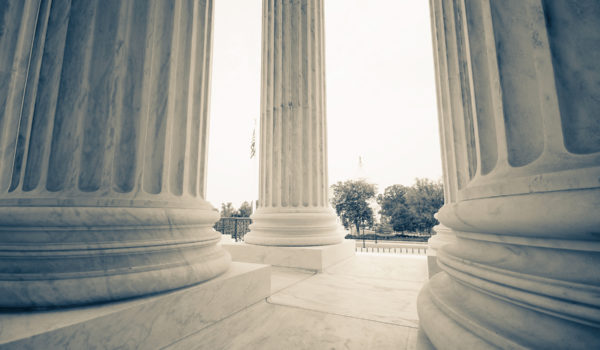As COVID-19 deaths and cases continue to rise, the Ohio House and the Senate are working along parallel tracks to enact some form of immunity for businesses and professionals operating during the pandemic that may face lawsuits as a result of employee or customer exposure to the virus. Both sides have passed bills limiting civil liability related to the COVID-19 crisis.
The House version of the bill, HB 606, passed on May 28 and has been referred to the Senate Judiciary Committee, where it is pending. The Senate’s version of the bill, SB 308, was passed by its chamber on June 3 and has been referred to the House. The House bill, which would afford the broader protection of the two proposed legislative actions, addresses legal immunity from lawsuits for both healthcare entities and businesses and further expands workers’ compensation benefits for illness related to the COVID-19 epidemic.
Specifically, HB 606 would preclude individuals who have been exposed to or contracted COVID-19 or a related illness from bringing suit against businesses or healthcare providers unless the illness or exposure was the result of reckless, intentional, willful, or wanton action on the part of the business or provider. This immunity would also preclude professional disciplinary action against healthcare providers who respond to disasters or emergencies (such as the COVID-19 crisis). Like the Bill’s curb on legal liability, the restriction on professional licensing discipline would not extend to cases where illness or exposure to the virus was the result of a provider’s “gross negligence.” The bill would further extend healthcare providers’ immunity from suit to cover any inability to provide treatment or elective procedures as a result of an executive order or agency regulation imposed to address the COVID-19 pandemic, but only for the period between March 9, 2020 and December 31, 2020.
Noting that health guidelines and best practices for dealing with the virus have changed rapidly and frequently throughout the year, the bill would also provide that government orders on health precautions or reopening procedures do not constitute actions that can be used to define the legal duties or responsibilities of business owners for purposes of any civil lawsuit that might be brought. The bill would also provide the state government with immunity from any liability related to the state’s response to the COVID-19 pandemic.
In addition to its other protections, the HB 606 notably includes language that would make cases of COVID-19 contracted by employees of retail food or food processing establishments – as well as certain first responders – occupational diseases under the state’s Workers’ Compensation Law. The bill would create a presumption that any essential worker (including retail food workers, food processing workers, police, firefighters, and EMS responders) who contracts the virus did so in the course of their employment. Under this doctrine, employees from those industries who contracted the virus would be presumptively eligible for workers’ compensation benefits. Employers, however, would receive enhanced protections under the workers’ compensation statute, which precludes civil lawsuits against employers for injuries that are compensated through workers’ compensation benefits.
Like HB 606, the Senate’s bill would limit tort liability for businesses that cause persons to be exposed or infected with an illness in the course of providing the business’s regular services during the course of the COVID-19 emergency. Under the proposed rules, civil suits would only be permitted in cases of reckless, intentional, or willful and wanton misconduct. Even if a situation would not fall under the bill’s protection, the bill would still prohibit class actions based on COVID-19 illness or exposure, a provision which differentiates the Senate bill from the House bill (which contains no language addressing potential class-action lawsuits). Like the House bill, SB 308 would also make clear that government orders and guidelines for operating in the pandemic do not create standards of care or legal duties that could serve as the basis for suits against the government. The Senate bill would also include immunity for healthcare providers responding to a disaster or emergency, as well as for the inability of healthcare providers to offer treatment or elective procedures as a result of the crisis. Like the House bill, the Senate bill includes a provision limiting professional licensure discipline to cases of gross negligence.
At this juncture, it is unclear whether one or both bills will be enacted or whether the House and Senate will cooperate to combine the measures into one piece of legislation. Regardless of the precise outcome, it seems likely that the deliberative bodies will take some legislative action restricting civil suits based on COVID-19 exposure or illness. The fate of HB 606’s expanded access to workers’ compensation benefits is less certain. Although some legislative action is likely in 2020, the exact timeline for either bill is uncertain due to the House’s imminent departure for the summer recess, which would last until September, and the potential for the Senate to recess as well.
If you or your business have questions regarding HB 606, SB 308, or the government’s response to the COVID-19 crisis generally, please contact Jason Renzelmann, Josh Lewis, or any attorney in Frost Brown Todd’s Business and Commercial Litigation practice group.

